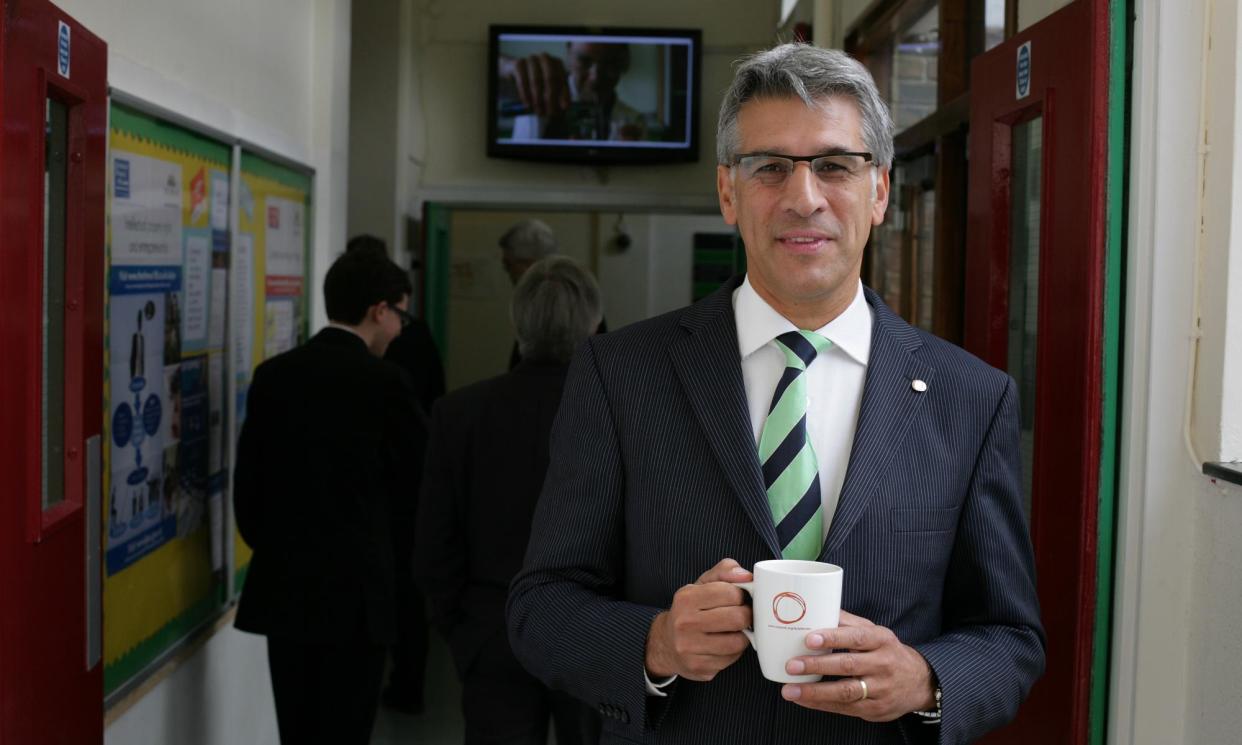Indoors at breaktime: the school in a London office block

Oasis Academy South Bank in Waterloo sits in a densely built-up corner of south London – so densely that the only space found for the school was in a recommissioned office block. There is no playground, no sports pitch, nowhere to play football at break time.
Steve Chalke is the founder of Oasis Charitable Trust, the organisation that runs the school, one of 54 in their charge across England. He admits it is a challenging environment.
“We are in an old 1960s office block. Kids have to be indoors at breaktime. We do have table tennis but for other sports there is no space. We hire the local park but it’s hard locally to hire sports pitches. It costs a lot because we are in central London and they aren’t always available.”
The land around the academy is hot property. Within walking distance, at Elephant & Castle station, cranes and diggers are a permanent fixture, building thousands of expensive private homes on land that was once council property.
One of the parents, Kathy, whose 12-year-old daughter – “high-energy, fidgety’’ – is a pupil at Oasis South Bank, says: “The lack of outdoor space is a downside, but I’m grateful we have a school in this area, because until 10 years ago we didn’t.”
The school is hugely oversubscribed. “We turn away many more children than we take,” says Chalke.
And Kathy and her daughter have some outside space – a shared garden for their flat and an allotment. “It’s not just about space, it’s about green as well,” she says. “Not everyone around here has that.”
Another parent, Sarah, says that it is the wider context that matters: “We are lucky to live near one of London’s last adventure playgrounds, so my son can head there after school, but I walk through many estates round here and see ‘No ballgames’ signs everywhere. That, for me, is more of a problem than what happens in school.”
Chalke and his team are busy looking for land they can use as city farms or specialist spaces for “the children we know can’t cope in the classroom”. They already have a city farm in Waterloo.
And he has concerns about the decisions that local authorities are making. “Down the road from us there is a former primary school – a Victorian building that will outlive any school building put up today. If we ran it we could have had six forms of entry – it had fantastic playgrounds.
“Instead the council sold it off in the 1980s. It’s now expensive apartments and those playgrounds are now private gardens and car parking space. So when we needed a new school in this area, all that was affordable was an office block.”
He warns that London boroughs are not keeping hold of enough land for children to live and breathe in.
“Councils are turning land into housing but leaving local schools without enough space. I’m seeing very cramped new schools where staff tell me: ‘You can’t swing a cat here’.
“Local authorities are not thinking of the next generation when they build too much housing. Once the space is gone, it’s gone for ever. Children need green space for their mental health and we neglect this to our long-term regret.”

 Yahoo News
Yahoo News 
